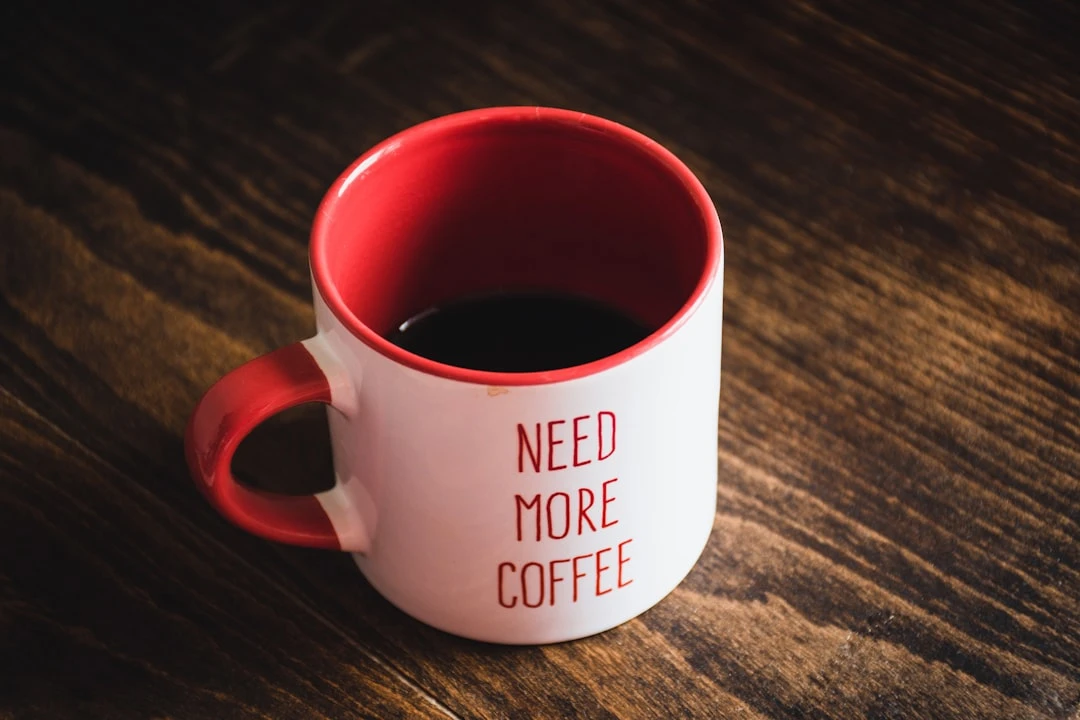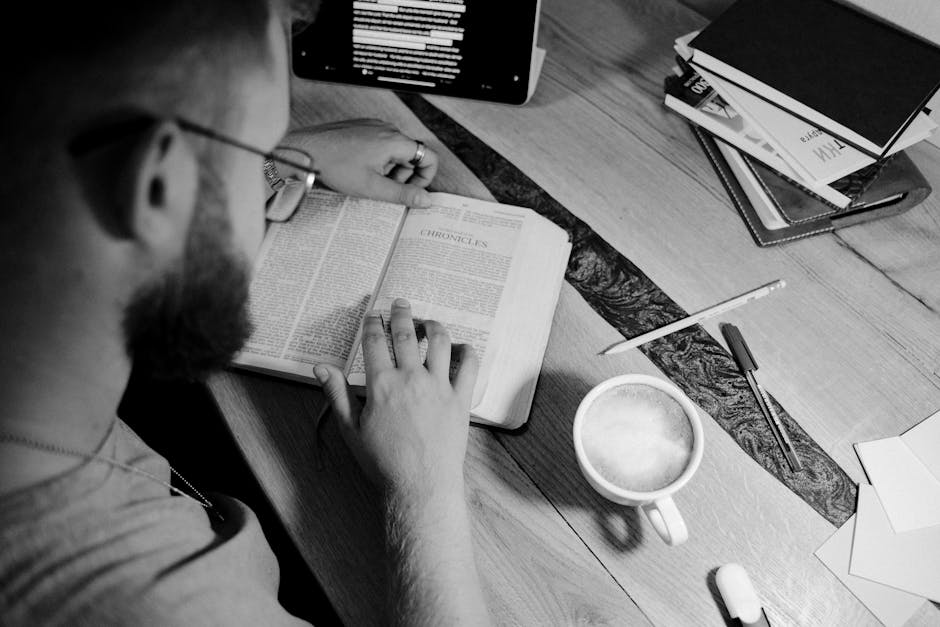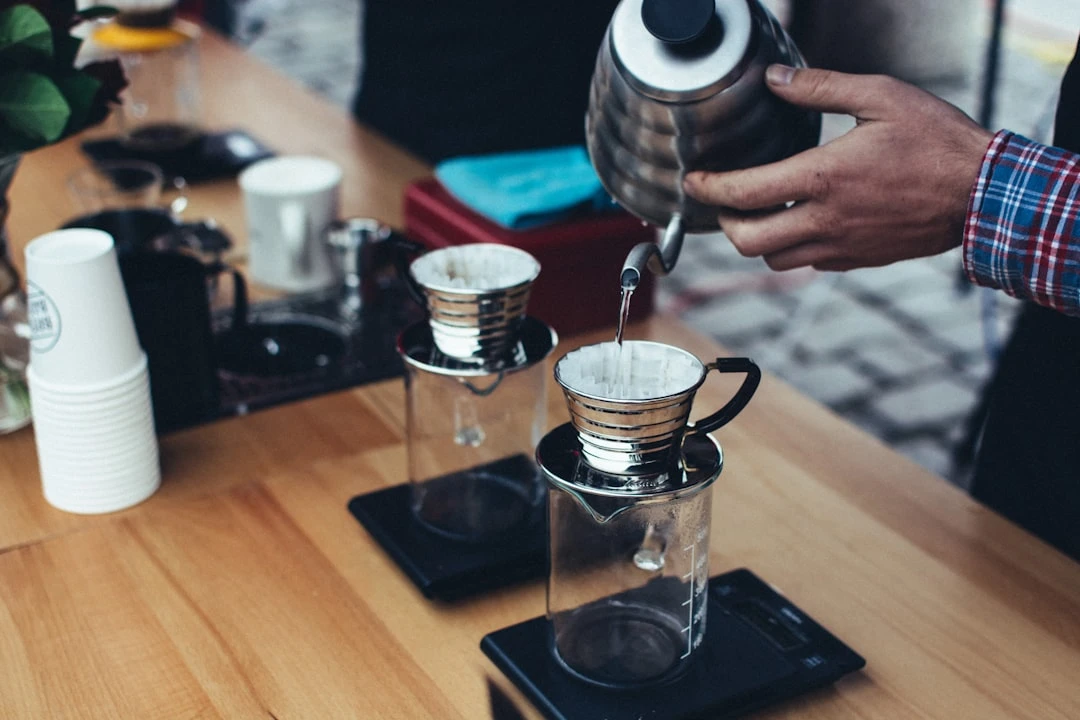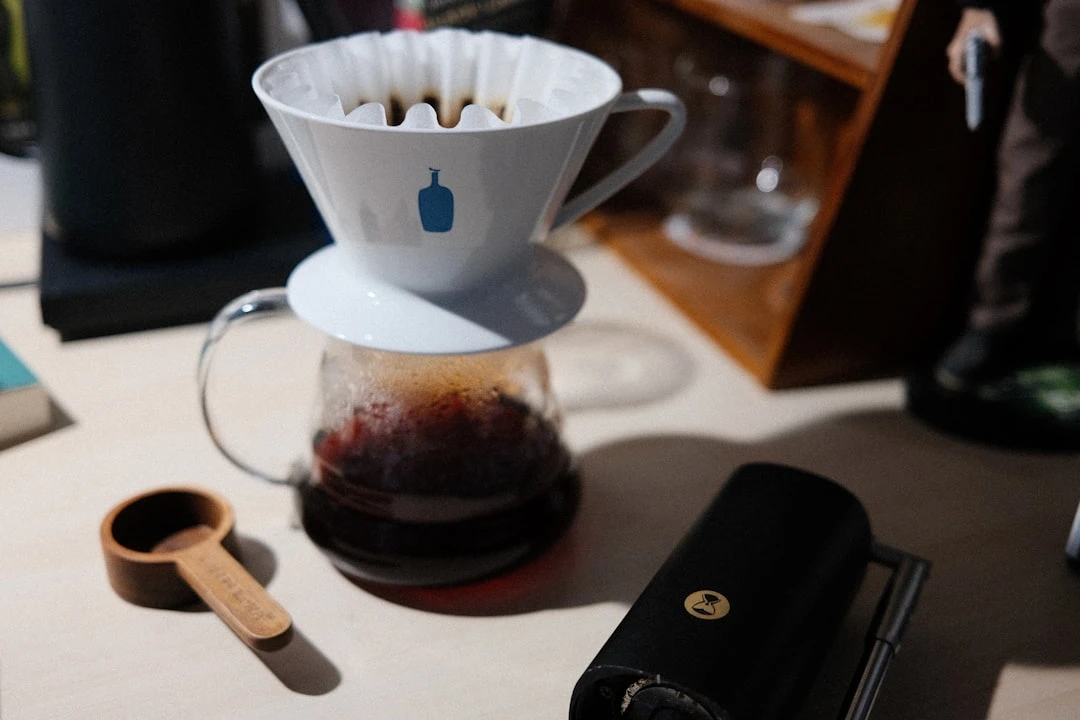How Long Does It Take Caffeine to Wear Off? A Complete Guide to Caffeine's Timeline in Your Body

Here's a mind-blowing fact that'll make you rethink your evening coffee habit: 75% of people who drink coffee after 2 PM are still feeling its effects when they try to fall asleep! I learned this the hard way during my college years when I thought grabbing a latte at 4 PM was perfectly fine. Boy, was I wrong.
I remember lying in bed at midnight, eyes wide open, heart racing slightly, wondering why I couldn't drift off. It wasn't until I started tracking my caffeine intake and sleep patterns that I realized my afternoon coffee ritual was sabotaging my nights. Understanding how long caffeine actually stays in your system isn't just academic curiosity – it's the key to better sleep, reduced anxiety, and feeling more in control of your energy levels throughout the day.
In this guide, I'll walk you through everything I've learned about caffeine's timeline in your body. You'll discover when caffeine peaks, how long it takes to completely clear your system, and most importantly, how to time your intake so you can enjoy your coffee without paying for it later with sleepless nights.
The Science Behind Caffeine Metabolism
Let me paint you a picture of what happens when you take that first sip of morning coffee. Within about 15 minutes, caffeine starts getting absorbed through your stomach and small intestine into your bloodstream. It's pretty incredible how fast this stuff works – I've noticed I can literally feel the fog lifting from my brain before I've even finished my first cup.
The magic really happens between 30 to 60 minutes after you drink caffeine. That's when it reaches peak levels in your blood, and honestly, that's when I feel most alert and focused. It's like someone suddenly turned up the brightness on everything around me. The caffeine molecules are busy blocking adenosine receptors in your brain – adenosine is basically your body's natural "sleepy chemical," so when caffeine blocks it, you feel more awake and alert.
But here's where it gets interesting, and where I made my biggest mistake for years. Not everyone processes caffeine the same way. Some people are what scientists call "fast metabolizers" while others are "slow metabolizers." I'm definitely in the slow camp, which explains why that afternoon coffee used to haunt me all night. Fast metabolizers can drink coffee in the evening and still sleep like babies, while people like me need to be way more strategic about timing.
Your liver does most of the heavy lifting when it comes to breaking down caffeine. It uses specific enzymes, particularly one called CYP1A2, to process the caffeine molecules. The efficiency of these enzymes varies dramatically between people based on genetics, age, and even what medications you might be taking.
Caffeine Half-Life: The 6-Hour Rule
This is where things get really practical, and honestly, learning about caffeine's half-life changed my entire relationship with coffee. The half-life of caffeine is about 6 hours for most healthy adults. What this means is that if you drink a cup of coffee containing 100mg of caffeine at noon, you'll still have 50mg floating around in your system at 6 PM.
I used to think that once I stopped "feeling" the caffeine, it was gone. Wrong! That's the tricky thing about caffeine – just because you're not bouncing off the walls doesn't mean it's not still affecting you. At 6 PM, when half the caffeine is still there, you might not feel jittery, but it's absolutely still impacting your ability to fall asleep later.
Let me break down the math that finally made this click for me. If I had that 100mg cup at noon, here's what's left in my system throughout the day: at 6 PM, 50mg remains; at midnight, 25mg is still there; and even at 6 AM the next morning, about 12.5mg is hanging around. That 25mg at midnight might not sound like much, but it's enough to make falling asleep harder and reduce the quality of deep sleep.
The frustrating part is that the 6-hour rule isn't set in stone. I've noticed that when I'm stressed or haven't been sleeping well, caffeine seems to stick around longer. Age plays a role too – my dad, who's in his 60s, says coffee affects him way longer than it used to when he was younger. Pregnancy can slow caffeine metabolism significantly, and certain medications can either speed it up or slow it down.
When Does Caffeine Completely Leave Your System?
Here's the timeline that actually matters for your sleep and overall well-being. While caffeine's half-life is around 6 hours, it takes much longer for it to completely clear your system. For most people, it takes about 12 to 24 hours for caffeine to be completely eliminated from the body.
I learned this lesson during a particularly stressful period at work when I was drinking coffee throughout the day just to keep up. Even though I'd stop drinking coffee by 2 PM, I was still having trouble falling asleep and staying asleep. My sleep tracker showed I was getting way less deep sleep than normal, and I was waking up feeling groggy despite getting my usual 7-8 hours.
The key insight here is the difference between feeling caffeine's effects and having it present in your body. You might stop feeling alert or jittery after 4-6 hours, but low levels of caffeine can still interfere with your sleep architecture. Even small amounts can prevent you from getting into those deeper, more restorative sleep stages.
What really opened my eyes was when I did a little experiment on myself. I cut out all caffeine after noon for two weeks and tracked my sleep quality. The difference was dramatic – I fell asleep faster, stayed asleep longer, and woke up feeling more refreshed. It wasn't that I was bouncing off the walls before; the caffeine was just quietly sabotaging my sleep quality.
Individual variation is huge here too. I have friends who can drink espresso after dinner and sleep like rocks, while others need to stop caffeine intake by 10 AM to sleep well. It really depends on your genetics, age, overall health, and even how much caffeine you regularly consume.
Factors That Affect How Long Caffeine Lasts
Age has been the biggest eye-opener for me in understanding caffeine metabolism. When I was in my twenties, I could drink coffee much later in the day without issues. Now in my thirties, I'm definitely more sensitive to timing. Older adults often find that caffeine affects them longer and more intensely than when they were younger because liver function naturally slows down with age.
Genetics play a massive role that most people don't realize. About half the population has genetic variations that make them slow caffeine metabolizers. If you're one of these people (like me), caffeine will stay in your system longer and potentially cause more side effects. There are actually genetic tests you can take to find out which category you fall into, though honestly, paying attention to how you feel is probably just as useful.
Pregnancy is a special case that deserves mention. Pregnant women metabolize caffeine much more slowly – we're talking about a half-life that can stretch to 15-20 hours instead of the usual 6. This is why doctors recommend limiting caffeine during pregnancy. When I was pregnant with my first child, I had to completely rethink my coffee habits because what used to be a normal amount suddenly felt overwhelming.
Medications can really throw a wrench in the works too. Birth control pills, for example, can slow down caffeine metabolism significantly. Some antibiotics and heart medications can do the same thing. On the flip side, smoking actually speeds up caffeine metabolism, which might explain why some smokers seem to drink coffee all day without apparent issues.
Your overall health and body composition matter as well. People with liver issues will process caffeine more slowly, and even factors like body weight can influence how long caffeine sticks around. I've noticed that when I'm well-hydrated and getting regular exercise, I seem to handle caffeine better overall.
How to Speed Up Caffeine Elimination
Water became my best friend once I understood how dehydration can make caffeine effects linger longer. Staying well-hydrated helps your kidneys flush out caffeine metabolites more efficiently. I make it a point to drink extra water after my morning coffee, and I swear it helps me avoid that afternoon crash that used to hit me around 3 PM.
Exercise is another game-changer, though not in the way you might think. Physical activity doesn't actually speed up caffeine metabolism directly, but it does help your body process stress hormones and can make you feel less jittery. I've found that a 20-minute walk after my afternoon coffee (back when I used to drink it) helped me feel more balanced and less wired.
Here's something that surprised me: certain foods might help support your body's natural detox processes. Foods rich in antioxidants like berries, leafy greens, and even dark chocolate can support liver function. Fiber-rich foods help your digestive system move things along more efficiently. I started adding more of these to my diet not specifically for caffeine, but I noticed I seemed to handle coffee better overall.
Now let me bust some myths that had me fooled for years. Taking vitamin C doesn't speed up caffeine elimination, despite what some websites claim. Neither does drinking more coffee to "push the old caffeine out" – that just adds more to your system. Cold showers might make you feel more alert, but they don't actually clear caffeine from your bloodstream any faster.
The most effective strategy I've found is simply timing caffeine intake better and being patient with your body's natural processes. Your liver is already working hard to process the caffeine; the best thing you can do is support it with good hydration, decent nutrition, and not overwhelming it with more stimulants.
Signs Caffeine Is Still in Your System
Learning to recognize when caffeine is still affecting me has been crucial for better sleep and overall well-being. The obvious signs are pretty clear – if you're feeling jittery, anxious, or your heart is racing, caffeine is definitely still working its magic. But there are subtler signs that took me longer to recognize.
Sleep quality is the big one that sneaks up on you. Even if you fall asleep at your normal time, caffeine still in your system can prevent you from getting deep, restorative sleep. I used to think I was sleeping fine, but my fitness tracker showed I was getting way less REM sleep and deep sleep than I should have been. I'd wake up feeling tired despite getting enough hours in bed.
Restlessness is another telltale sign. If you find yourself fidgeting, unable to sit still, or feeling like you need to be constantly moving, there's probably still caffeine floating around in your bloodstream. I notice this especially in the evening – if I can't settle down to read a book or watch TV without feeling antsy, it's usually because I had caffeine too late in the day.
Your heart rate can stay slightly elevated for hours after caffeine consumption, even when you don't consciously notice it. I started paying attention to this after getting a fitness tracker, and it was eye-opening to see how my resting heart rate would stay higher than normal for 8-10 hours after drinking coffee.
Mental effects can linger too. If you're having trouble concentrating or feeling mentally scattered in the evening, it might be because caffeine is interfering with your natural wind-down process. Your brain should be naturally preparing for sleep as the day progresses, but caffeine can keep it in a more alert state longer than you realize.
Timing Your Caffeine Intake for Better Sleep
This is where the rubber meets the road – practical timing strategies that actually work in real life. The general rule I follow now is no caffeine after 2 PM if I want to be in bed by 10 PM. That gives me a solid 8 hours for most of the caffeine to clear my system before I'm trying to fall asleep.
But let's be honest, life doesn't always work that neatly. On days when I absolutely need an afternoon pick-me-up, I've learned to make strategic choices. A small cup of green tea instead of coffee gives me a gentler boost with less caffeine. Or I'll have just a few sips of coffee rather than a full cup. Every little bit helps when you're trying to minimize the impact on your sleep.
Weekend timing can be different if you naturally stay up later and sleep in. I'm more flexible with my caffeine cutoff on Fridays and Saturdays because I'm not trying to fall asleep at 10 PM. But I've learned not to go completely crazy because it makes Monday morning that much harder when I need to get back on schedule.
For people who work shifts or travel frequently, the timing gets more complicated. The key is working backward from when you want to sleep, regardless of what time that is. If you're a night shift worker who needs to sleep at 8 AM, you'd want to stop caffeine intake around midnight. It's the same principle, just shifted to match your schedule.
I've also learned that consistency matters as much as timing. My body responds better when I have my coffee at roughly the same time each morning rather than randomly throughout the day. This helps maintain a more predictable energy pattern and makes it easier to avoid late-day caffeine cravings.
Conclusion
Understanding caffeine's timeline in your body is honestly one of those small changes that can make a big difference in how you feel day to day. The key takeaways that have made the biggest impact for me are remembering that caffeine has a 6-hour half-life, takes 12-24 hours to completely clear your system, and affects sleep quality even when you don't feel actively "caffeinated."
Everyone's caffeine sensitivity is different, so I'd encourage you to experiment with your own timing and pay attention to how different schedules affect your sleep and energy levels. Keep a simple log for a week or two – note when you have caffeine and how you sleep that night. You might be surprised by the patterns you discover.
Remember that good sleep is worth way more than that extra cup of coffee in the afternoon. If you're struggling with sleep quality, consider moving your caffeine cutoff earlier in the day before trying other solutions. Sometimes the simplest changes make the biggest difference.
Related Articles

How Many Espresso Shots in a Day is Safe For Health?
Read More →
How Long Does Coffee Keep You Awake?
Read More →


